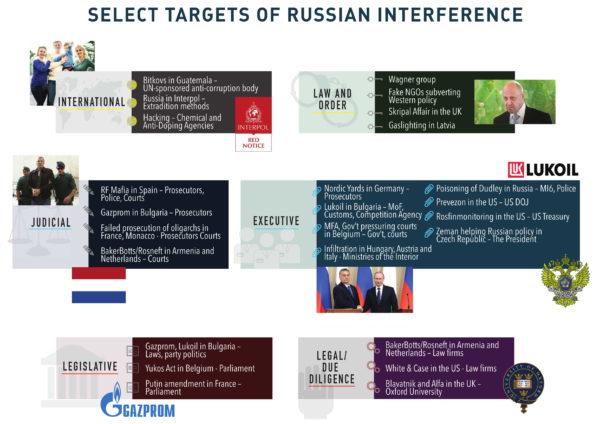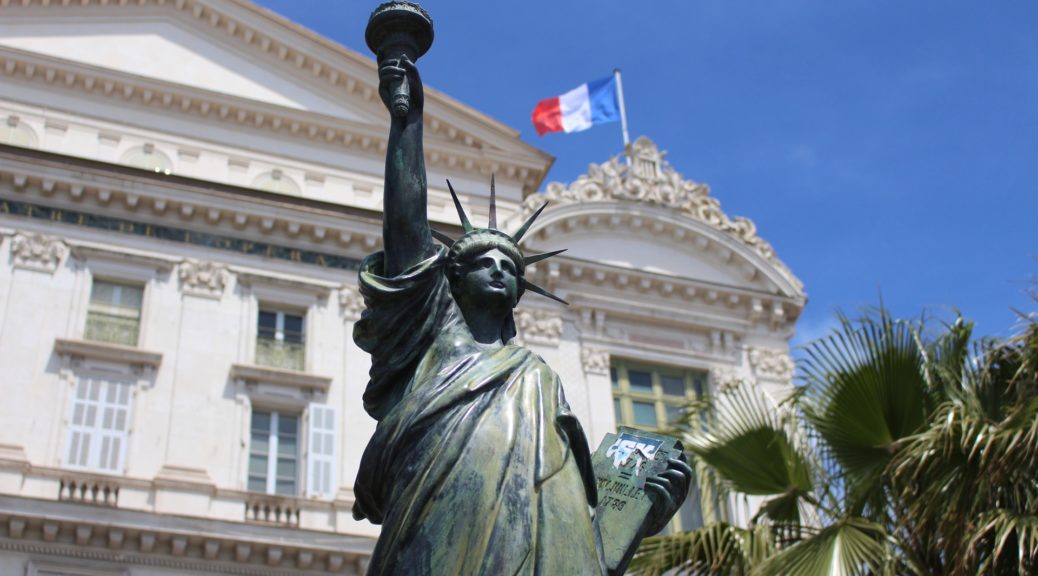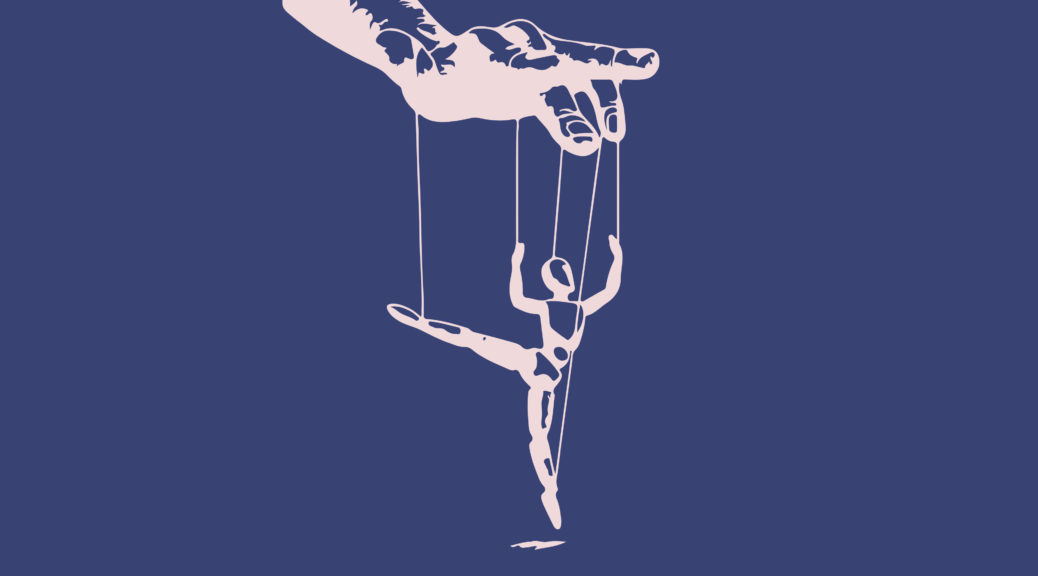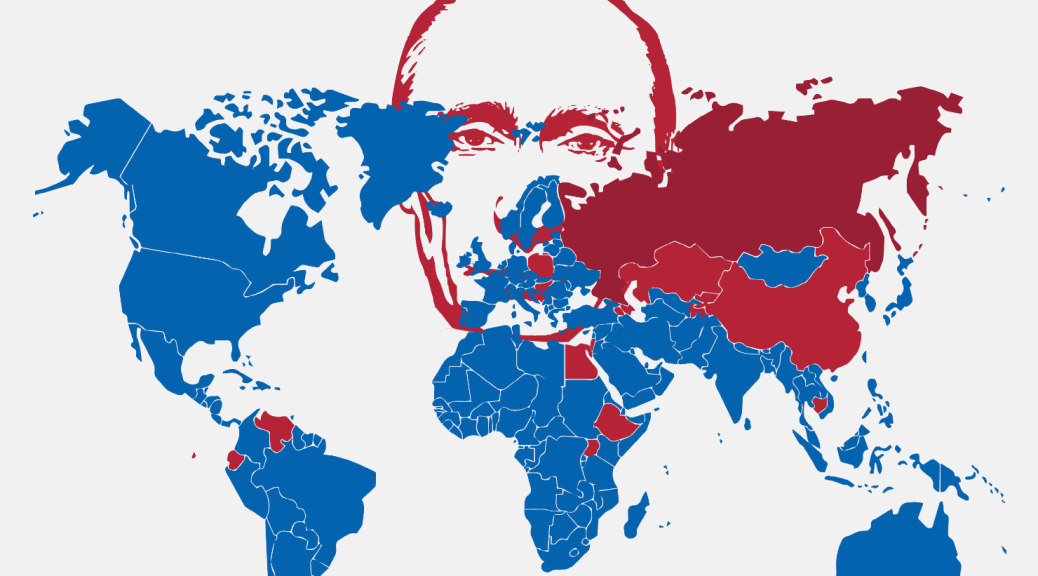The Free Russia Foundation has assembled a team of experienced writers, researchers, and journalists affiliated with different organizations, to document some of the most compelling cases of Russian meddling. However, these events are only a sample; the Putin regime is busy throughout the world, undermining the integrity of Western judicial and policymaking institutions.
This report, a tour d’horizon of Russian active measures and subversion campaigns throughout North America and Europe, demonstrates that Vladimir Putin’s attempts to infiltrate Western institutions are relentless and that there is one constant to his two decade-long engagement: he triumphs where we invite him to, and most of all where we happily act as his complacent enablers.
This is a story of how the West consistently fails to get its own house in order. The very institutions created after World War II to keep transparent markets and liberal democracies from corrosion and collapse are now playgrounds for Kremlin agents seeking to enrich themselves and further that corrosion and collapse along. More than anything, the pathologies of our own societies are on ample display in these pages as the principal reason why so many oligarchs, intelligence operatives and bribe-offering banks and energy companies have been able to thrive outside of Russia.
The Putin regime’s persistence has paid off quite well in its geo-political battle of wills with the West, whereby Russia’s military actions since 2014 have been met with lukewarm international sanctions that have failed to shift their course.
What we hope this report demonstrates is the need for Western governments to take a stronger stand and vigorously defend their values and institutions. While this may not have the same impact as ending a bloody war, refusal to give in to the Kremlin’s advances for new laws to protect its business and financial interests; putting up barriers in response to Russia’s abuse of international law enforcement entities or enforcing existing laws so that oligarchs can’t hide behind newly-created NGOs can begin to push back against Russia’s current lawless actions.
If an individual nation defends its criminal and civil court system or combats corrupt practices within its own government, this will provide much-needed resistance against the Kremlin’s aims and objectives.If, collectively, several nations decide to join forces in this effort, ample pressure will be placed on Russia’s leadership to make it play by the rules more often and respect our institutions rather than try to manipulate them.
In the pages of this report, you’ll read about these, and many more:
– a U.S. federal money-laundering case was sabotaged by a Moscow attorney turned Congressional lobbyist, who obstructed justice, set up a dubious charity in Delaware to dismantle a landmark American human rights act— all before trying to influence a U.S. presidential race;
– Russian mobsters in Spain, despite a mountain of incriminating evidence compiled over the course of a decade, all went free by, among other things, enlisting Spanish jurists to spread a malevolent defamation campaign against one of his country’s most committed counterterrorism and organized crime magistrates;
– the Kremlin directed effort to pass laws in the Belgian and French parliaments that would effectively nullify the Yukos shareholder court decisions and render them unenforceable against the Russian Federation;
– the eccentric president of a NATO and EU member-state sided against his own government in favor of a hostile foreign one, to which he’s been financially and politically connected for years.
The chart below visually summarizes some of the cases, countries, branches of power, institutions and entities in the West impacted by Russian interference:
The report’s contributing authors:
Nataliya Arno
Ms. Arno is the founder and president of Free Russia Foundation, a non-partisan non-profit think tank headquartered in Washington, DC with affiliate offices in Kyiv Ukraine and Tbilisi Georgia. Prior to creating Free Russia Foundation, Ms. Arno worked for the Moscow office of the International Republican Institute where she was the Russia country director from 2008 until 2014.
Neil Barnett
Mr. Barnett is founder and CEO of Istok Associates, a London-based intelligence and investigation consultancy focused on Central & Eastern Europe and the Middle East & North Africa. Previously, he was a journalist in the same regions for 13 years and wrote for the Telegraph, the Spectator and Janes publications. He covered the war in Iraq, the Ukrainian Orange Revolution, the eastern expansion of NATO and the EU in the 2000s and Balkan organized crime.
Rumena Filipova
Ms. Filipova’s primary research at the Center for the Study of Democracy is related to Russian domestic and foreign policy as well the Kremlin’s media, political and economic influence in Central and Eastern Europe. She holds an MPhil and DPhil in International Relations from the University of Oxford. She has been a visiting fellow at the Carnegie Moscow Center, the Polish Institute of International Affairs, and Chatham House, among others.
Vasily Gatov
Mr. Gatov is a media researcher, journalist, analyst and media investment expert.He is the former head of RIA Novosti MediaLab (2011 – 2013).
Jacub Janda
Mr. Janda is the Executive Director and member of the executive board of the European Values Think Tank headquartered in Prague, Czech Republic.
John Lough
Mr. Lough is Managing Director of JBKL Advisory Ltd, a strategy consulting company, and an Associate Fellow with the Russia & Eurasia Programme at Chatham House. In a private capacity, he has been providing pro bono advice to the Bitkov family as part of the campaign for their freedom since 2015. He is the co-author of the Chatham House research paper ‘Are Ukraine’s Anti-Corruption Reforms Working?’ (November 2018) https://www.chathamhouse.org/publication/are-ukraines-anti-corruption-reforms-working
Anton Shekhovtsov
Mr. Shekhovtsov is an external Lecturer at the University of Vienna, Associate Research Fellow at the Swedish Institute of International Affairs, an expert at the European Platform for Democratic Elections, and General Editor of the “Explorations of the Far Right” book series at ibidem-Verlag. His main area of expertise is the European far right, relations between Russia and radical right-wing parties in the West, and illiberal tendencies in Central and Eastern Europe.
Maria Snegovaya
Ms. Snegovaya is a PhD candidate at Columbia University. Expert on the sources of support for the populist parties in the Eastern Europe. She is a regular contributor to The Washington Post, The Huffington Post, The New Republic, and columnist at Russia’s “Vedomosti” business daily.
Dr. Denis Sokolov
Dr. Sokolov is a research expert on the North Caucasus for Free Russia Foundation focusing on the informal economy of the region, land disputes, and institutional foundations of military conflicts. He is a senior research fellow at the Russian Presidential Academy of National Economy and Public Administration (RANEPA) and research director at the Center for Social and Economic Research of Regions (RAMCOM).
Martin Vladimirov
Mr. Vladimirov is an energy security expert specializing in natural gas and renewables markets at the European policy think tank, Center for the Study of Democracy (CSD). His work at CSD focuses on analysis of the energy security and governance risks in Europe, political risk and international security. Before joining CSD, Mr. Vladimirov worked as an oil and gas consultant at the The Oil and Gas Year, where he worked in Turkey, Kazakhstan and Saudi Arabia. He holds a Master’s degree from the School of Advanced International Studies (SAIS) at Johns Hopkins University. He has written several academic publications, multiple policy reports and is the co-author of four recent books on Russian influence including the Kremlin Playbook: Understanding Russian Influence in Central and Eastern Europe, Kremlin Playbook 2: The Enablers,The Russian Economic Grip on Central and Eastern Europe and A Closer Look at Russia and its Influence on the World.
Michael Weiss
Mr. Weiss is an American journalist and author of the New York TimesBestseller Isis: Inside the Army of Terror. He is a senior editor for The Daily Beast, a consulting executive editor at Coda Story, a columnist for Foreign Policyand a frequent national security analyst and contributor for CNN.
Ilya Zaslavskiy
Mr. Zaslavskiyis Head of Research for the Free Russia Foundation (FRF) and Head of Underminers.info, a research project exposing kleptocrats from Eurasia in the West. Until December 2018 he was a member of the Advisory Council at the Hudson Institute’s Kleptocracy Initiative for which he wrote a report on “How Non-State Actors Export Kleptocratic Norms to the West”. Prior to joining FRF, he was Senior Visiting Fellow, Legatum Institute, and Bosch Fellow, Chatham House. He has written reports on Eurasian energy and kleptocracy for the Atlantic Council, Council on Foreign Relations, Martens Centre and other think tanks.
For Press enquiries, please contact: [email protected]








